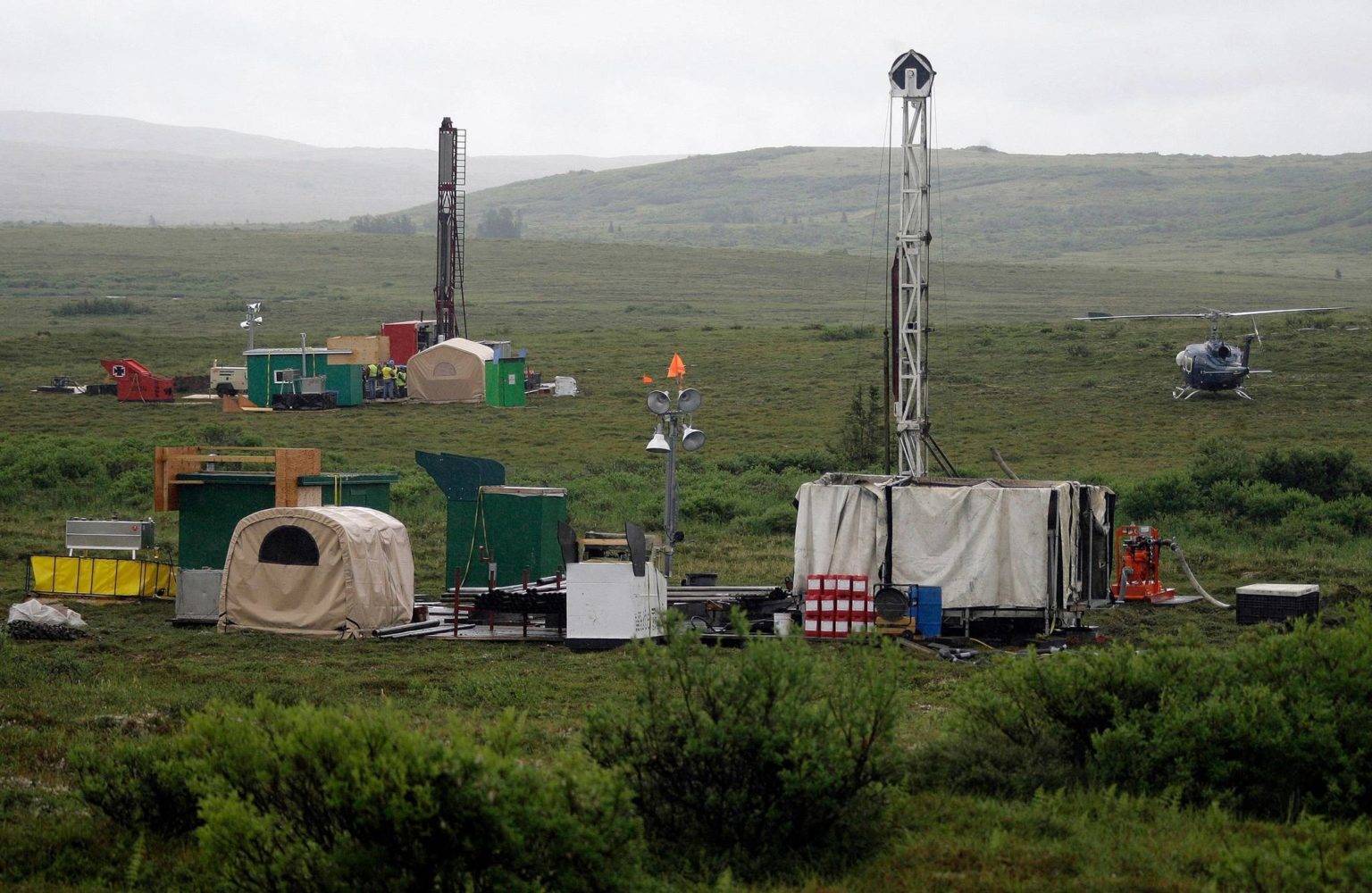By BECKY BOHRER
Associated Press
JUNEAU — An agreement announced Tuesday between an Alaska Native village corporation and conservationists would restrict development on lands in the Bristol Bay region where a mine developer has proposed a road, a move that could create another obstacle for the proposed Pebble Mine.
The Conservation Fund said it has launched a fundraising campaign to buy the land easements on more than 44,000 acres from the Pedro Bay Corp. for $18.3 million. Terms call for the money to be raised by the end of 2022, said Ann Simonelli, a spokesperson for the Virginia-based conservation group.
The corporation would retain ownership of the land, and the easements would be managed by the Bristol Bay Heritage Land Trust, a group focused on preserving salmon and wildlife habitat in southwest Alaska’s Bristol Bay region. According to a statement announcing the agreement, terms of the deal would bar the execution of any right-of-way agreements with the mine project due to the easements’ restrictions on development. The planned easements cover part of a transportation route proposed by the Pebble Mine, the statement says.
Mike Heatwole, a spokesperson for the Pebble Limited Partnership, which seeks to develop the mine, said Pebble’s focus is on a pending appeal with the U.S. Army Corps of Engineers. “This recent development hasn’t really changed that focus in any way,” he said by email.
The corps last year denied approval of a key project permit. The corps division handling the appeal said a decision on whether it has merit could take more than a year.
Critics of the proposed copper and gold mine have said they want permanent measures implemented that would place the Bristol Bay region off limits to large-scale mining. Bristol Bay supports the world’s largest runs of sockeye salmon, according to the U.S. Environmental Protection Agency.
Matt McDaniel, Pedro Bay Corp. CEO, said the conservation agreement “supports the values of our community members by protecting their land, their subsistence and their traditional way of life.”
“This is an opportunity that will provide our community benefits and economic value in perpetuity,” he said in a statement.
Simonelli said The Conservation Fund and its partners are seeking to raise $20 million, which in addition to the easement purchases includes funding for easement stewardship and $500,000 to the nonprofit Pedro Bay Benefits Corp. for an educational and cultural fund for Pedro Bay shareholders.
Tim Troll, executive director of the Bristol Bay Heritage Land Trust, said in weighing long-term salmon productivity, “you’ve got to look at landscape-level stuff.”
“So that’s why this deal is important,” he said.
The organizations also have worked together previously in the region.
A fishery doesn’t last as long as the Bristol Bay salmon fishery “if you don’t have the habitat to make that happen,” he said, adding later: “We’d be wanting to do this deal, regardless of a road.”

